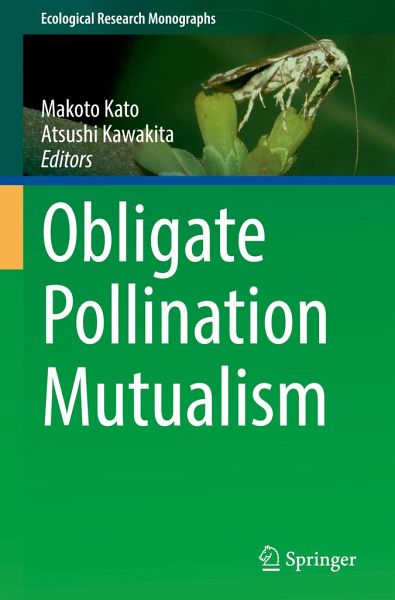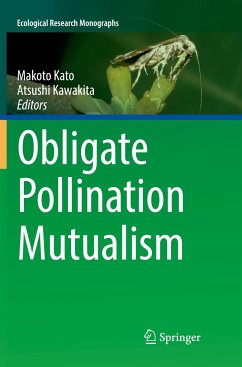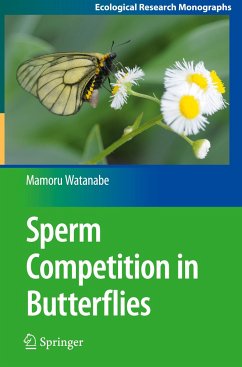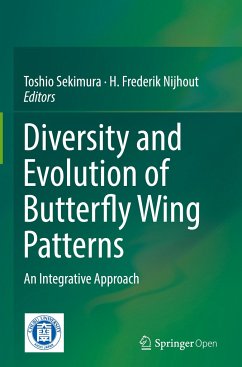
Obligate Pollination Mutualism

PAYBACK Punkte
65 °P sammeln!
This book presents a comprehensive overview of our current understanding of mutualism origin, plant-pollinator specificity, mutualism stability, and reciprocal diversification. In particular, it focuses on the natural history and evolutionary history of the third example of obligate pollination mutualism, leafflower-leafflower moth association, which was discovered in the plant family Phyllanthaceae by the lead editor and then established by the editors and their coworkers as an ideal model system for studies of mutualism and the coevolutionary process. This work brings together the knowledge ...
This book presents a comprehensive overview of our current understanding of mutualism origin, plant-pollinator specificity, mutualism stability, and reciprocal diversification. In particular, it focuses on the natural history and evolutionary history of the third example of obligate pollination mutualism, leafflower-leafflower moth association, which was discovered in the plant family Phyllanthaceae by the lead editor and then established by the editors and their coworkers as an ideal model system for studies of mutualism and the coevolutionary process. This work brings together the knowledge they have gained through an array of research conducted using different approaches, ranging from taxonomy, phylogenetics, ecology, and evolutionary biology to biogeography.
Richly illustrated with numerous original color photographs, the volume consists of 13 chapters and is divided into three main parts: natural history, ecology, and evolution. It begins by showcasing numerous examples of plant-animal interactions and their origins to guide readers in the world of leafflowers and their pollinators. The immense diversity of Phyllanthaceae and pollinator moths is then explored, and in the following 7 chapters mutualism is discussed from a range of ecological and evolutionary points of view. The final chapter presents a review of the evolution and variety of obligate pollination mutualisms.
This book offers researchers and students in the field of ecology, botany, evolutionary biology, pollination biology, entomology, and tropical biology fascinating insights into why such a costly pollination system has evolved and why Phyllanthaceae is so diverse despite the inconspicuousness of their flowers.
Richly illustrated with numerous original color photographs, the volume consists of 13 chapters and is divided into three main parts: natural history, ecology, and evolution. It begins by showcasing numerous examples of plant-animal interactions and their origins to guide readers in the world of leafflowers and their pollinators. The immense diversity of Phyllanthaceae and pollinator moths is then explored, and in the following 7 chapters mutualism is discussed from a range of ecological and evolutionary points of view. The final chapter presents a review of the evolution and variety of obligate pollination mutualisms.
This book offers researchers and students in the field of ecology, botany, evolutionary biology, pollination biology, entomology, and tropical biology fascinating insights into why such a costly pollination system has evolved and why Phyllanthaceae is so diverse despite the inconspicuousness of their flowers.












